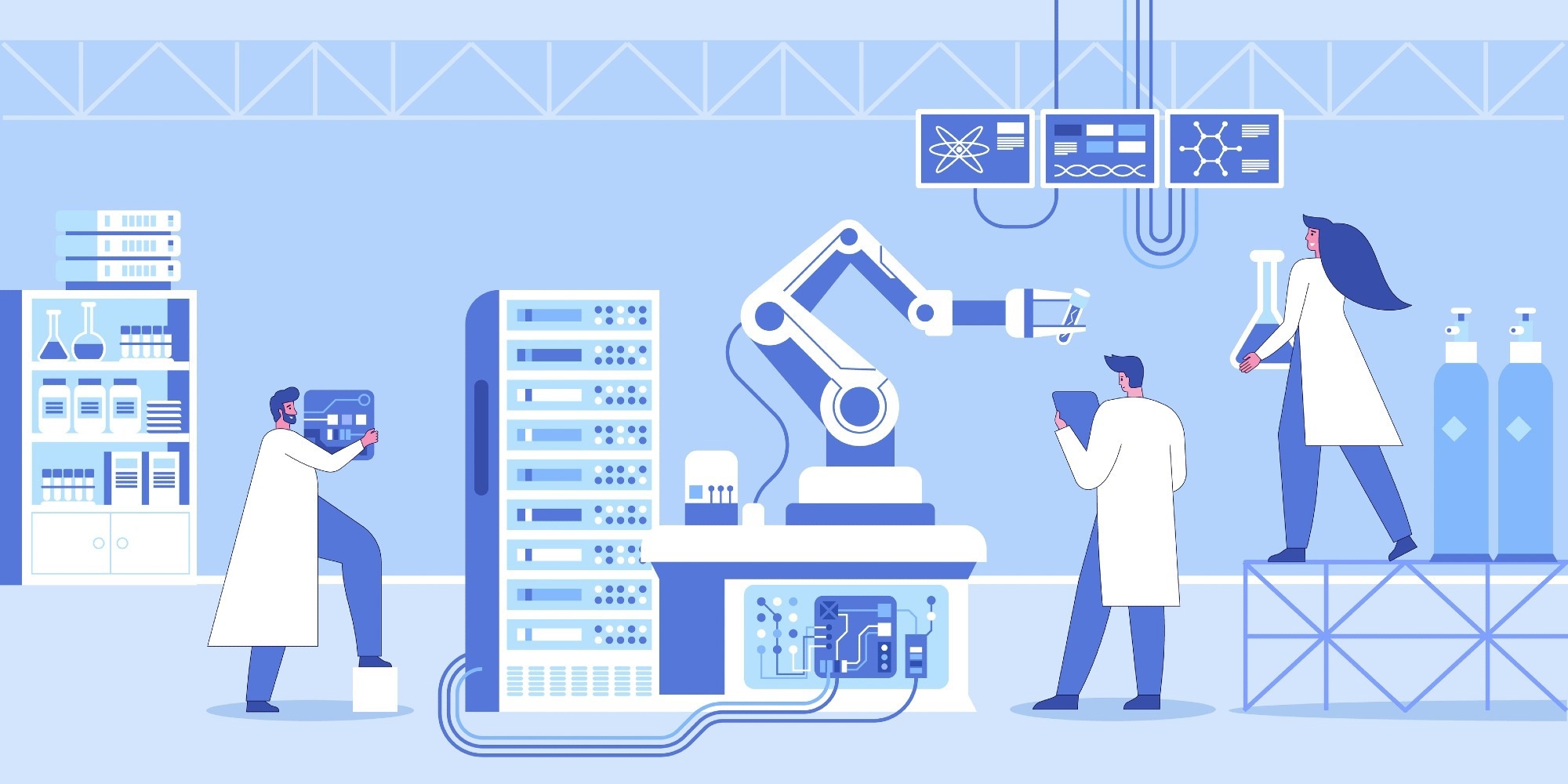The ‘automation of science’ has been theorized to make better decisions with a higher level of speed. Automated systems have been integrated within drug discovery with medium throughput to high-throughput robotic screening in tests which have become the standard protocol for pharmaceutical industries. Automated systems can include decision-support systems, computational molecular design, and robotic synthesis.

Image Credit: Ico Maker/Shutterstock.com
The use of high-throughput compound screening can be significant for the progression of drug discovery, as these results, along with those produced from fragment screening and computational modeling, can further the knowledge researchers have on their drug candidates. This can result in optimizing the suitable drug candidates more likely to succeed in clinical trials and gaining Food and Drug Administration (FDA) approval.
Smart automation of individual parts and machine learning can aid in reducing randomness and error within drug development, which can be effective for researchers as it can ensure time and resources are not wasted on less impactful drug compounds. It can also ensure the drug discovery process is more streamlined with a higher level of productivity and progression within compounds associated with impacting biological targets within a disease area for which the drug is being created.
Additionally, with the whole design cycle being performed within a software program, active learning algorithms can enable researchers to be directed toward compounds with more promising properties.
Challenges Involved in Drug Discovery
The drug development process can take a long period before reaching the market. This fact has increased innovation and advancements within research to produce potential strategies to increase the probability of approval, which can significantly impact pharmaceutical companies.
Pharmaceutical companies can have high expenditures when developing novel drugs and clinical trials, which are also associated with high expenses; due to this, the potential of wasting resources and money on compounds that do not reach the market can be discouraging as it can lead to negative financial reports.
Additionally, companies and researchers that are dependent on investors and funding can be impacted by the lack of confidence in the drug discovery process, which is a highly regulated procedure, and the possibility of the compound failing can result in investors pulling out or a lack of funding for research laboratories.
Streamlining Through Automation
The drug discovery process can lead to only a small number of drugs being approved by the FDA. However, lab automation, which can reduce human error, and provide algorithms to improve the likelihood of successful compounds, can be a practical approach to streamlining the drug discovery process and supporting researchers and pharmaceutical companies.
The use of laboratory automation has revolutionized research as it has also been a tool for increasing efficiency. This approach has enabled laboratories to perform many repetitive tasks. This has enabled researchers to be used elsewhere in the lab and attend to more intellectually stimulating research areas, which can raise workplace morale and reduce pressure.
Lab automation has become a fruitful way to depend less on scientists and laboratory workers that may have had demanding jobs with repetitive tasks that may not have been conducive to their mental health. Instead, laboratory workers may be able to focus on their goals and objectives for their research in other areas to ensure a balance between tasks. Workers that are fulfilled more at their jobs can produce a higher quality of work, which can aid in enhancing the quality of research that is generated.

Image Credit: Maxx-Studio/Shutterstock.com
Future Outlook
Lab automation has advanced laboratories and has greatly impacted the drug discovery process as it has enabled repetitive tasks to be done with a higher level of efficiency, speed, and fewer human errors. This can also maximize the amount of data generated and add to the drug research being produced, as with faster turnaround times, results can be analyzed at a more efficient pace.
The use of lab automation can also free up time for laboratory workers and ensure they are given more opportunities to expand their knowledge and contribute to research. This can further impact research efficacy with more competent researchers working on enhancing research on drug compounds.
Additionally, lab automation can also aid with algorithms that can be used to decipher the types of drug compounds that should be given the highest priority for research. This can ensure that compounds that are less likely to impact biological targets for a disease are not prioritized, as this can waste time and resources.
Enhanced knowledge of effective drug compounds that interact with the biological target and mechanism of action can provide researchers with promising candidates to spend more time and focus on, to streamline and strengthen the drug discovery process.
Sources:
- Bajwa S, Virdi S, Bajwa S et al. In depth analysis of motivational factors at work in the health industry. Ind Psychiatry J. 2010;19(1):20. doi:10.4103/0972-6748.77631
- Genomics F. Automation in Drug Discovery - Front Line Genomics. Front Line Genomics. https://frontlinegenomics.com/automation-in-drug-discovery/#benefitsofautomatingthelab. Published 2022. Accessed July 19, 2022.
- Schneider, G. Automating drug discovery. Nat Rev Drug Discov 17, 97–113 (2018). https://doi.org/10.1038/nrd.2017.232
Further Reading